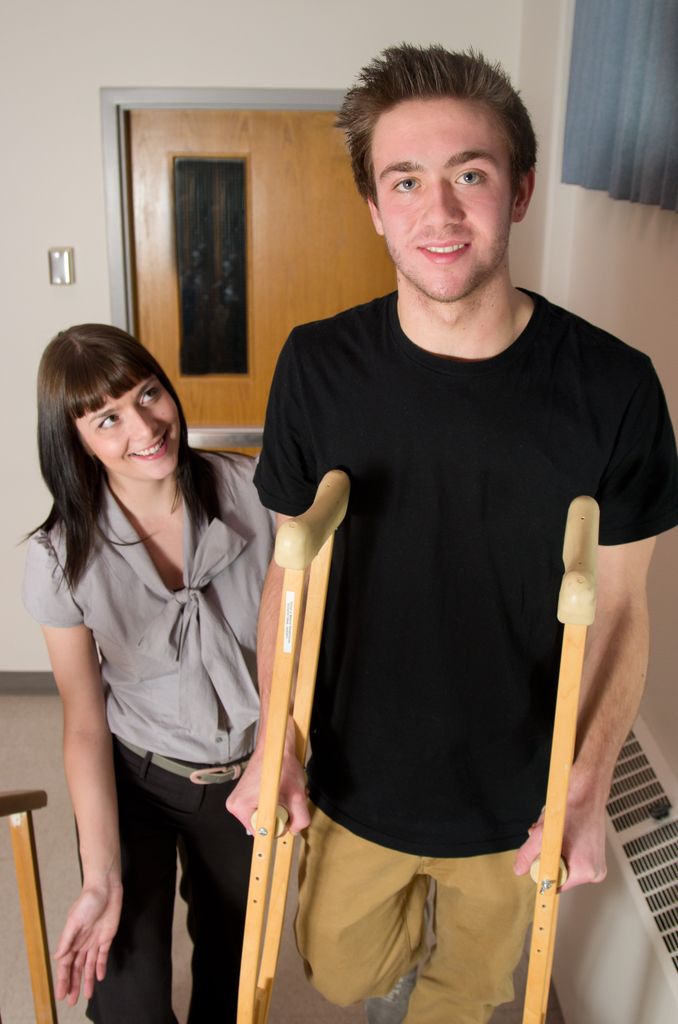WHAT IS OT?

Occupational therapists are trained health-care professionals who use a client-centred approach to enable individuals and groups to become more engaged and independent in the occupations of life.
Occupational Therapists:
- Assist individuals with injury, disability, physical illness, participation restriction, or mental illness.
- Consider physical, emotional, cultural, social and spiritual aspects of their clients’ lives.
- Modify activities, adapt environments, implement rehabilitative treatment plans, and advocate for resources to foster independence for their clients.
- Provide education and training to individuals, caregivers, groups, and organizations.
- Practice in a variety of settings including rehabilitation centres, hospitals, schools, houses, outpatient clinics, workplaces, personal care homes, and more.
Occupational Therapy (OT) is a health profession that empowers people of all ages to overcome challenges in their everyday lives so they can do more and live better.
Occupational therapy is often provided through the hospital system or other government-funded health agencies. If your primary provider does not suggest a referral to occupational therapy services when you feel you or your loved one may benefit from one, ask for it. You may also have occupational therapy coverage through your private health insurance. If you are not covered by any health insurance, you can still hire an occupational therapist on a fee-for-service basis (costs vary according to the OT service and provider – check with your OT provider)
Education of Occupational Therapists
To occupational therapists, the term occupation refers to all activities a person wants and needs to participate in everyday – including self-care, leisure, and productivity. and groups to become more engaged and independent in the occupations of life.
The occupational therapy education program at the University of Manitoba in the College of Rehabilitation Sciences incorporates classroom education, self-directed learning, hands-on training, extensive research projects, and fieldwork education.
The University of Manitoba grants a Master’s Degree in Occupational Therapy.
To practice as an occupational therapist in Manitoba a person must be registered with the College of Occupational Therapists of MB (COTM) – www.cotm.ca COTM will confirm that any person wanting to practice in MB meets the necessary requirements. COTM also requires its members to maintain ongoing competence activities.
For more information on becoming an occupational therapist, visit the University of Manitoba, College of Rehabilitation Sciences website.

Still not sure? You can arrange to meet with an occupational therapist through the University of Manitoba’s Career Mentor Program.

The scope of occupational therapy practice is large, with occupational therapists working in a variety of settings including:
- Community agencies
- Hospitals
- Long-term care facilities
- Rehabilitation centres
- Clinics
- Schools
- Social agencies
- Businesses
- Insurance companies
- Construction or architectural firms
- Independent practices
Occupational therapists may specialize in a number of ways, including:
- Working with specific age groups
- Working with specific health conditions or disabilities
- Working with individuals, groups or entire communities
Many occupational therapists also work as part of larger, multidisciplinary health-care team, collaborating with other professionals to develop comprehensive care plans.
Whether they are providing consultation or delivering hands-on direct care, occupational therapists are hard at work every day in Manitoba, enabling ability and assisting to improve the overall health and well-being of people’s lives.

